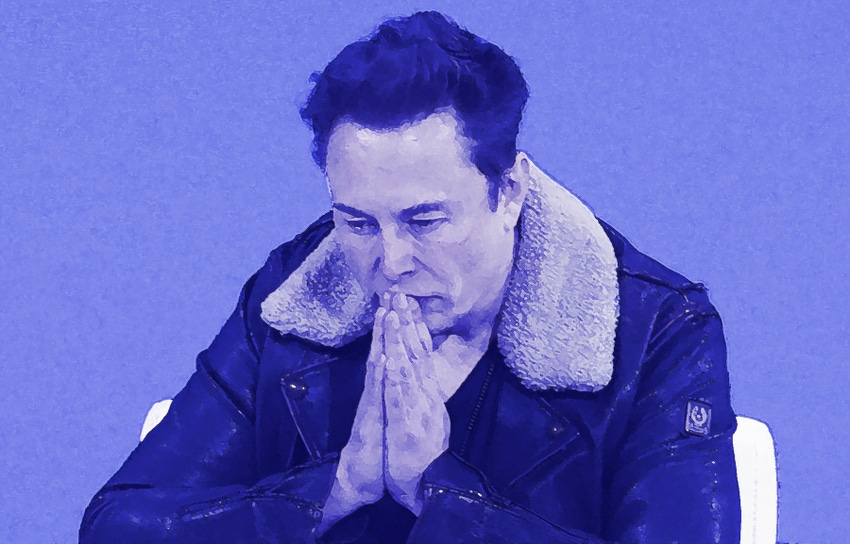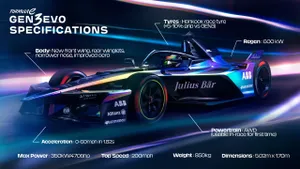What Those Bad Tesla Numbers Mean for The EV Industry
Are Tesla’s disappointing Q1 2024 sales numbers and stock-market tumble a harbinger for the rest of the industry?

This has been a tough week for Tesla and a nerve-wracking one for the stock market, the EV industry and the battery supply chain—all triggered by Tesla’s much lower than expected Q1 deliveries, which the company reported on Monday.
The bad news
Tesla reported that in the first quarter of this year it built 433,000 vehicles—but delivered only 387,000 of them.
Tesla experienced a slight decline in vehicle production, approximately 1.7% compared to the previous year, and a sequential decrease of 12.5%. This decline, however, wasn't as significant as that 8.5% annual drop in deliveries.
Tesla doesn't provide a breakdown of sales by model, but it disclosed that it manufactured 412,376 Model 3/Y cars and delivered 369,783 of them. Additionally, it produced 20,995 of its other models and delivered 17,027 units.
In the corresponding period of the previous year, Tesla reported 422,875 deliveries with production totaling 440,808 vehicles. In the fourth quarter of 2023, Tesla's deliveries amounted to 484,507, with production reaching 494,989 vehicles.
The Wall Street Journal noted that the drop in sales marks the first time since 2020 that the number vehicle deliveries has fallen.
In the wake of the report, Tesla stocks tumbled 4.9% and on the day after the announcement it was the worst performer in the benchmark S&P 500. (A day later it had risen to only second-worst.) “The shares, which traded for around $400 as recently as January 2022, are now at $166 and dropping,” Bloomberg reported on April 3.
Industry-wide headwinds
Tesla’s report stated, “Decline in volumes was partially due to the early phase of the production ramp of the updated Model 3 at our Fremont factory and factory shutdowns resulting from shipping diversions caused by the Red Sea conflict and an arson attack at Gigafactory Berlin.” Well, okay, but that doesn’t really address the decline in sales.
Market analysts offered a number of factors to explain the tumble. For example:
There has been a well-documented global decline in the pace of EV adoption, which affects the entire industry. “The shift to electrification and battery power received pushback in 2023. Planned battery projects got downsized. Some production plans were reduced. There were many questions about whether ambitious goals could be achieved,” we noted in January.
Competition getting fierce
China competition is also getting fierce, with BYD running neck-and-neck and other China EV makers gaining. “After sluggish sales numbers for its China-made cars in January and February, Tesla reduced production of its Model 3 and Model Y at its Shanghai plant and slashed workers’ schedules to five days a week from 6½ days,” CNBC reported.
Competition from non-Chinese companies is also a factor: In the US, “the ranks of electric and hybrid cars from Kia, Rivian, and General Motors have fundamentally changed the market,” noted Intelligencer. "No longer are EV buyers synonymous with Musk superfans—a reality that has been especially challenging for Tesla."
Also in the US, Model 3 Rear-Wheel Drive and Model 3 Long Range have lost an up to $7,500 federal tax credit this year due to newly phased in IRA regulations. These require 50% of the value of battery components to be produced or assembled in North America to qualify for $3,750 of the credit and 40% of the value of critical minerals sourced from the US or one of its free-trade partner nations. That’s enough to make some buyers balk who might have otherwise bought.
And then there’s Elon Musk
But along with those external factors are other issues: Inside the industry-wide challenges are Tesla-specific concerns, including pricing, self-driving challenges, the less-than-stellar reception to Cybertuck, and more. And then there's CEO Elon Musk himself.
In February, we wondered whether Elon Musk’s very public actions unrelated to Tesla might be negatively impacting the Tesla brand. Others are beginning to argue that it is. Here’s a Reuters headline from this week: ‘Would-be Tesla buyers snub company as Musk's reputation dips.’ “The ranks of would-be Tesla buyers in the United States are shrinking, according to a survey by market intelligence firm Caliber, which attributed the drop in part to CEO Elon Musk's polarizing persona,” it begins.
And a MarketWatch headline: ‘Tesla’s delivery woes suggest the EV maker has an Elon Musk problem.’ The opinion column notes the Caliber data and quotes Tesla investor Ross Gerber, CEO of Gerber Kawasaki Wealth and Investment Management, who said this on Twitter/X:
And still we rise
The question for the industry is whether and how much Tesla’s news is a harbinger of bad tidings for the rest of them or else a mainly Tesla problem. It’s fair to say that nerves were jangled by this news this week. But does it mean the sky is falling for the industry?
Probably not.
People talk online about the slowdown in demand as if EV demand has actually declined or even cratered. The facts just don’t support that, however.
“While overall demand for EVs still is growing rapidly—US EV sales rose 40% last year and topped 1 million vehicles for the first time—the pace of growth has been less than some forecasts,” CNN noted. “That has prompted some traditional automakers, such as General Motors and Ford, to pull back on their EV production plans.”
Demand for EVs is higher than ever—and still rising: It’s just that the pace is slower than was hoped for. Tesla’s news this week isn't evidence that that has changed.
About the Author(s)
You May Also Like





